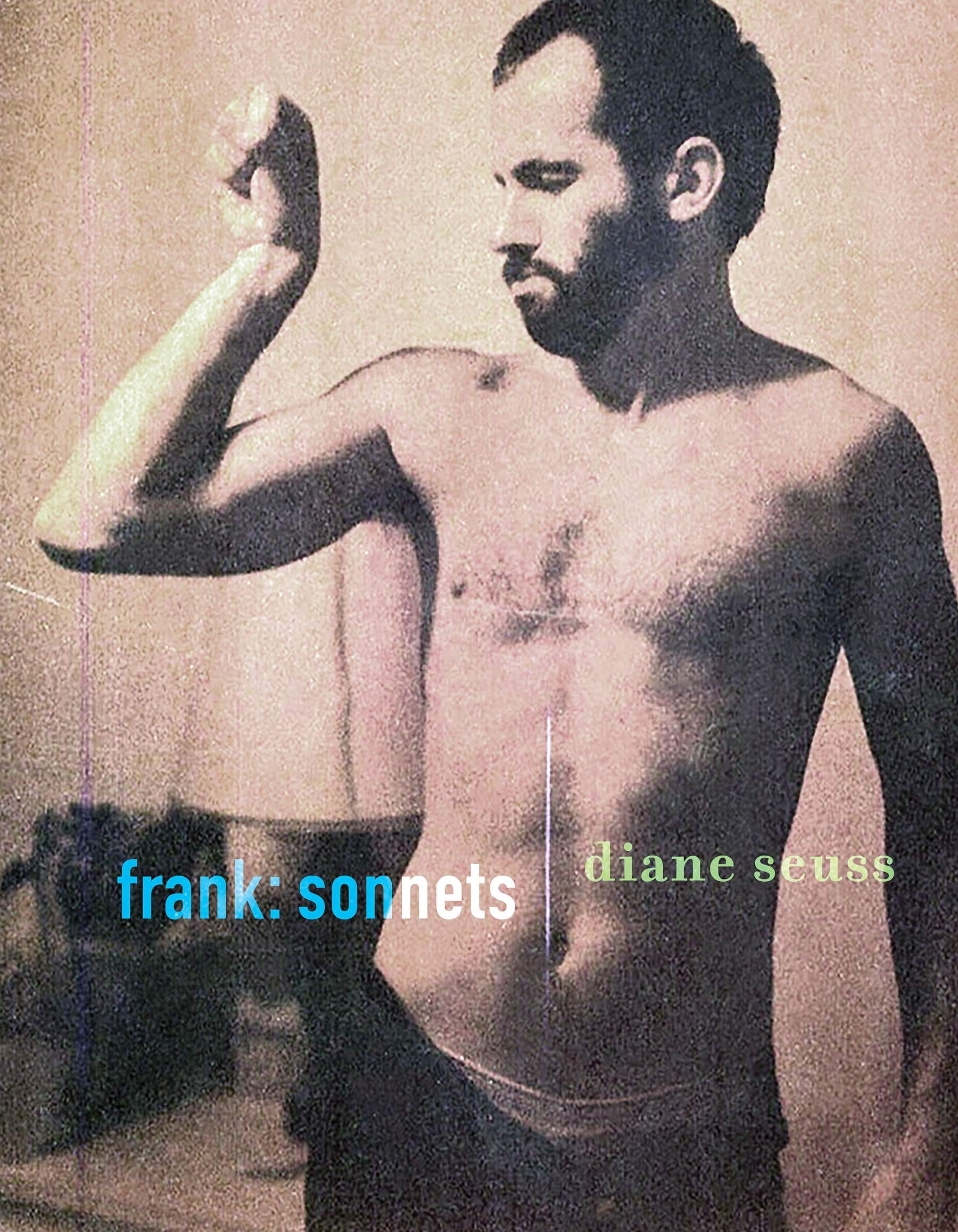frank: sonnets by Diane Seuss (Graywolf)
When Diane Seuss’s latest book, frank: sonnets, dropped, it quickly became one of the most talked-about collections of the year, proving that the continually-reinvented American sonnet can still surprise us. So can Diane Seuss. This groundbreaking work comes on the heels of Still Life with Two Dead Peacocks and a Girl, a 2018 finalist for the National Book Critics Circle Award and the Los Angeles Times Book Prize, and Four-Legged Girl, a finalist for the 2016 Pulitzer Prize. Seuss herself refers to frank: sonnets as a memoir in sonnets, a cinematic one: “a sonnet is one frame in a long strip / of celluloid most of which will end up on the cutting- / room floor….” There are 127 of these frames, long-lined “Seussian Sonnets” as Terrance Hayes dubs them. At the heart, in a pullout centerfold, a one-sentence sonnet recounts a dramatic act of maternal protection: “I hoisted them, two drug dealers, I guess that’s what they were, crackheads, I exiled them is what I did, from my son’s basement apartment, they’d come to feast of what was left.” On the centerfold’s B side: a sonnet taken from Seuss’s son’s own words.
“Death does not exist in poetry,” one sonnet begins. Seuss later adds, “No choking sounds in poems, no smell of blood.” These poems navigate proximities to death: these are poems about giving birth and choosing not to give birth, about wanting to die when giving birth and just plain wanting to die, about losing her father, about disease and deadly addiction:
I am in no way Jesus, I am in no way even the bad Mary
let alone the good, though I have held my living son
in the pietà pose, I didn’t know at the time I was doing it
but now that I look back, he’d overdosed and nearly died,
my heart, he said, his lips blue, don’t worry, I’ve paid.
These are also sonnets that pulse with life, thriving in particulars: “I had no squeamishness, I’d eat alligator, rabbit / with the head on, fish eggs, eyes, hitchhike playing / the mouth harp.” Raised in rural Michigan by a single mother, Seuss “lived within punk’s borders” and her breadth of allusions reflects both encounters and influences, including John Donne, Lou Reed, Etheridge Knight, Ravel, Hall and Oates, Lorca, and “a dog named / Wanda who ate Galway Kinnell’s signature off The Book of Nightmares.” Even Sosus of Pergamon shows up. The title nods to both Frank O’Hara and an Amy Winehouse album, as well as the directness of voice. Yes, this book is talky, yes, it is lyrical, and yes, these sonnets are brilliant. Seuss says, “The sonnet, like poverty, teaches you what you can do / without.” Her fourteen-liners run on their own music, conversing with the form’s traditions, diving through and around conventions, and even occasionally landing on a few final rhyming couplets: think “mean” and “queen.” Seuss has left her mark.



